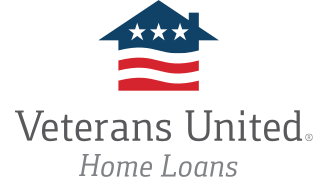VA Loan Qualification: Financial Requirements for VA Loans
Veterans must meet certain financial requirements to qualify for a VA loan. However, the financial requirements for VA loans are often more lenient compared to other home loan options.
For many Veterans and active-duty service members, the opportunity to own a home is a well-deserved benefit of their service to our country. One of the most attractive financing options available is the VA loan program.
VA loans offer numerous advantages, including competitive interest rates, no down payment requirement and often more lenient financial requirements compared to other types of mortgages.
How to Qualify for a VA Loan
To qualify for a VA loan, borrowers must meet requirements in two primary areas:
- Service requirements
- Financial requirements
Financial Requirements for VA Loan Qualification
While the VA itself does not establish fixed financial requirements, VA lenders generally adhere to certain guidelines when evaluating a borrower's financial situation. VA lenders consider several financial factors, including credit score, residual income, debt-to-income (DTI) ratio and employment history. These benchmarks may vary by lender but generally follow similar guidelines.
See the table below for common benchmark financial requirements to qualify for a VA loan:
| Financial Aspect | Benchmark Requirement |
|---|---|
| Credit Score | 620 |
| DTI Ratio | 41% |
| Residual Income | Varies by desired loan amount |
| Employment | 2 years of consistent employment |
VA Loan Credit Requirements for 2024
One of the notable advantages of VA loans is their more relaxed credit requirements compared to other loan options. When evaluating your credit for a VA loan, lenders will consider factors such as your FICO credit score, timeliness of previous payments, age of credit accounts and other factors contributing to your overall credit history.
Minimum Credit Score for VA Loans
There is no fixed minimum credit score requirement to qualify for a VA loan. However, most VA lenders typically look for a credit score of 620 or higher to qualify for a VA mortgage.
If your credit score falls below this benchmark, don't worry; there are steps you can take to improve your creditworthiness and increase your chances of qualifying for a VA loan.
VA Loan Income Requirements for 2024
While there are no set income requirements for VA loans, lenders adhere to a general set of criteria when evaluating a borrower's financial stability. The income requirements for VA loans primarily revolve around two key factors: residual income and debt-to-income ratio (DTI).
Debt-to-Income Requirements
Your VA lender will assess your debt-to-income ratio (DTI) when evaluating your finances for a VA loan. Your DTI compares the size of your monthly debts, including the potential new mortgage payment, to your total monthly income.
Typically, lenders require a DTI ratio of 41% or less to qualify for a VA loan.
Learn More: VA Loan Debt-to-Income (DTI) Ratio Requirements
Residual Income for VA Loans
One unique feature of VA loans is the residual income requirement. Residual income is the amount of money you have left over after paying your monthly debts and obligations, including the mortgage payment.
Lenders aim to reduce financial risk by ensuring borrowers have sufficient income to cover their daily living expenses. Your VA residual income requirement will depend on various factors, including your:
- Desired loan amount
- Property location
- Household size
Learn More: VA Loan Residual Income Guidelines
VA Loan Employment Requirements for 2024
In terms of employment history, VA lenders aim to verify that your income is stable and consistent. To meet this standard, most lenders typically require a two-year record of consistent full-time employment.
Learn More: VA Loan Employment Requirements
Do you qualify for a VA loan?
If you're a Veteran or active-duty service member interested in obtaining a VA loan, your first step should be to contact a VA lender. They can assess your specific situation and guide you through the process of qualifying for a VA loan.
Remember, while there are benchmark financial requirements to qualify for a VA loan, each lender may have slightly different criteria. Work closely with your qualified VA lender to verify your eligibility for the VA home loan program.


